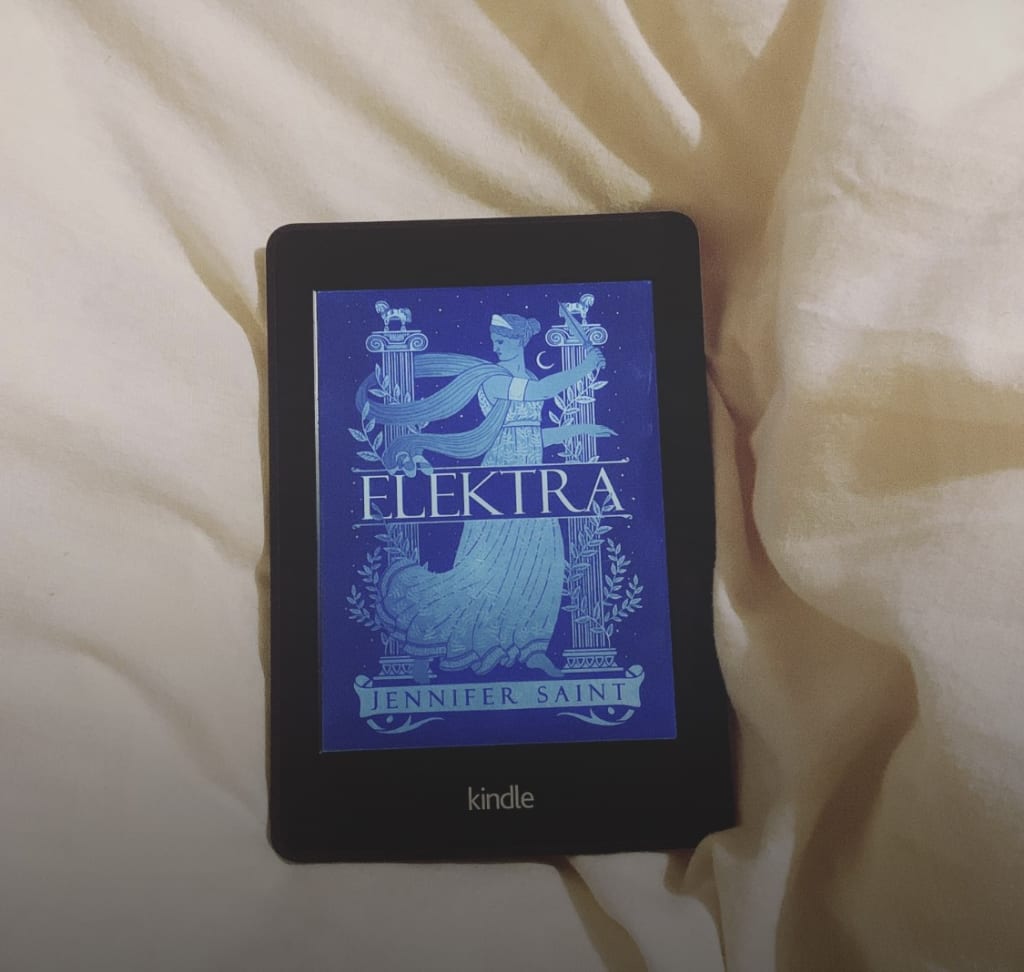Book Review: "Elektra" by Jennifer Saint
5/5 - a superb retelling with amazing character development...

Jennifer Saint is a really great author who has written some pretty awesome stuff so far. Her book Ariadne was something that I absolutely adored reading because it told us all the story that I think that we were all waiting to hear - the one that told us exactly what happened to the famed Ariadne who had incredible powers, but in the story of Theseus and the Minotaur, is side-lined in favour of the warrior who would take on a great beast of phenomenal strength. In this book, called Elektra - she tells a story that is of similar calibre. The three characters are extremely well-known: Clytemnestra, Cassandra and Elektra. The topic of discussion is the fickle, unlawful and often volatile world of men, gods, war and family. The entire story rests upon a curse that links all of these three women together in a chain of horrid events that will change the very face of the earth.
The House of Atreus is horribly cursed, if you know anything about the mythology of the Trojan War, you would probably know this already. However, the book is not context dependent on the Iliad, the Odyssey or even the Orestian Trilogy. Instead, it is more dependent on how much you understand of these three women when you come into contact with them (which, in the original Greek writings is unfortunately not too often). Jennifer Saint gives us not just the reactions and stories of these women living under turbulent and fairly violent gods, but she also gives us a book about the people who did not have their characters explored in as much depth as the men did.
Cassandra is given a gift by the god Apollo, which also has a curse entailed within it. Apollo states that Cassandra will always see what is going to be happening in the near future but, in a twist of fate, she will never be believed. Cassandra sees the fall of Troy and how it will all take place and yet, can do nothing about it since nobody believes her. She states this:
“Every word I speak is unwelcome. My throat is raw from the words that are torn from me when I touch someone, when I look into their eyes and see the blinding white truth. My prophecies rip out my insides, but still they come, unbidden, even as I quake at the consequences.”
Clytemnestra has an obvious anger issue if you know anything about her from the Orestian Trilogy. But, in Jennifer Saint's book, she justifies it in a way that if I ever were to read the Orestian Trilogy again, I will now read it differently. Clytemnestra is not angry out of anything too much more than Agamemnon sacrificing their eldest child. The lack of attention paid to even consulting her before this happened is horrifying as that is the child's mother. When things start to unfold, this powerful couple dives into a state of devastation. Clytemnestra, as the sister of Helen of Troy, is just as beautiful, but unlike her sister - she puts her foot right down on the ground when things go wrong. Her character is so much more in this book, which is what I love. There is so much more resilience from her instead of her being pushed into the background and into silence. She states:
"In the light of the rising sun, I prayed that my husband would survive this war and come home safe to me. I wanted no Trojan soldier to take what was mine; no glory-seeking warrior to seize his chance of fame by plunging his sword into Agamemnon’s heart Let him come back, I hissed into the empty sky. Let him come back so that I can see his eyes as the light drains from them. Let him come back and die at the hands of his bitterest enemy. Let him come back so that I can watch him suffer. And let me make it slow."
I really like the character of Elektra in this book because in the plays it seems like she is just being pulled around by Orestes all the time. She's the daughter of Agamemnon and Clytemnestra and is planning the murder of her mother alongside her brother (Orestes). I'm not going to lie, a lot of the Euripides play spends an awfully long time talking about Orestes for a play that is called 'Electra'. But I'm glad she has more of a part in this one, it is truly fascinating to learn more about her own motives and intentions instead of the ones she believes from her brother. She states:
“ I have always wanted to grow up to be the woman he thought I would become, the woman I could have been, if only he had been able to stay. To live up to the name he gave me.”
This is truly a great achievement of a mythology retelling because not only has it been well researched, but it has also been incredibly written with a compelling narrative that draws together one of the most famous (and infamous in some cases) families in all of Ancient Greece.
About the Creator
Annie Kapur
195K+ Reads on Vocal.
English Lecturer
🎓Literature & Writing (B.A)
🎓Film & Writing (M.A)
🎓Secondary English Education (PgDipEd) (QTS)
📍Birmingham, UK






Comments
Annie Kapur is not accepting comments at the moment
Want to show your support? Become a pledged subscriber or send them a one-off tip.